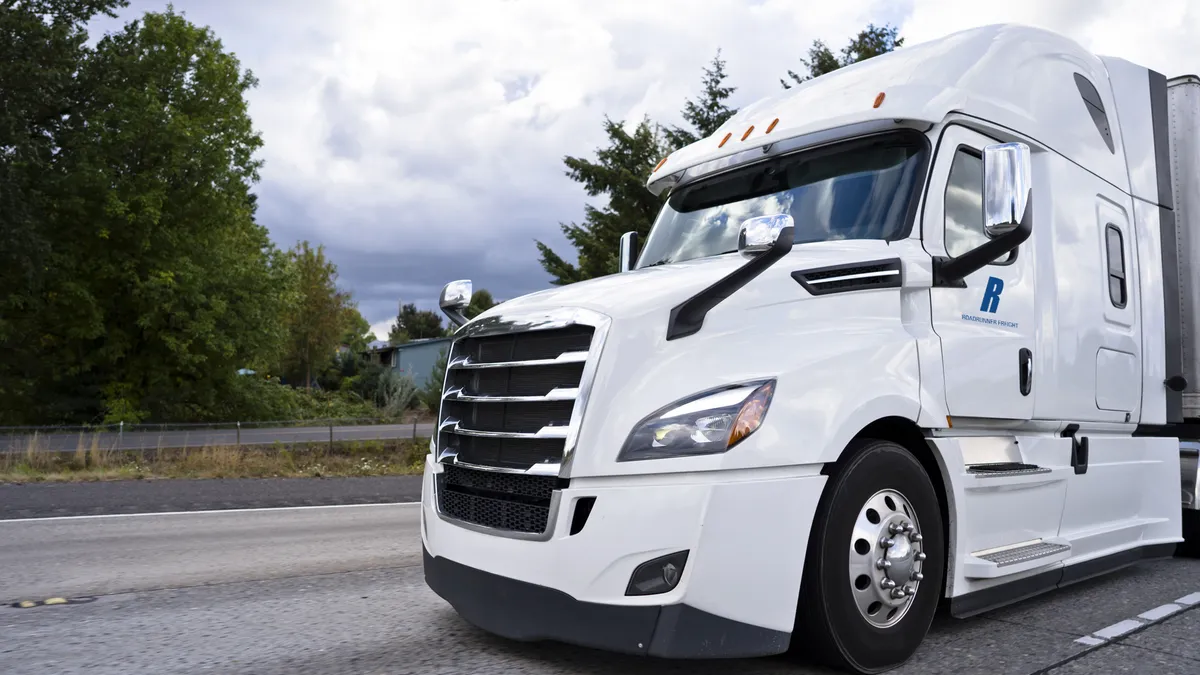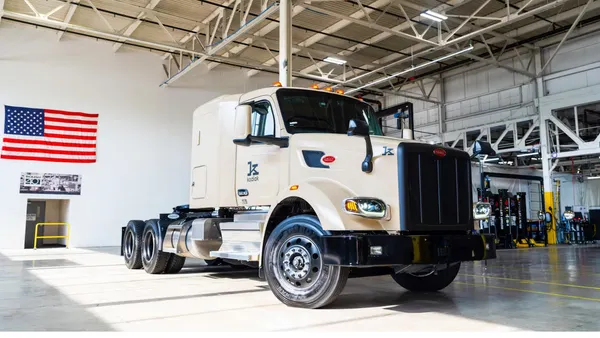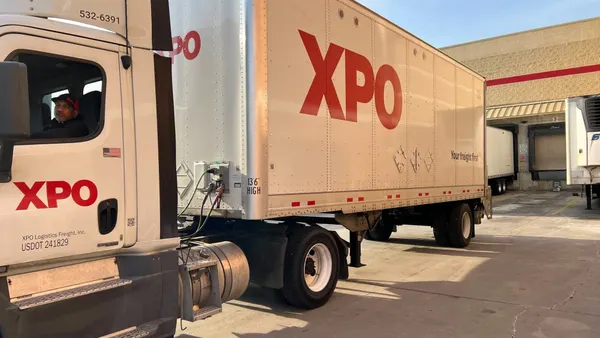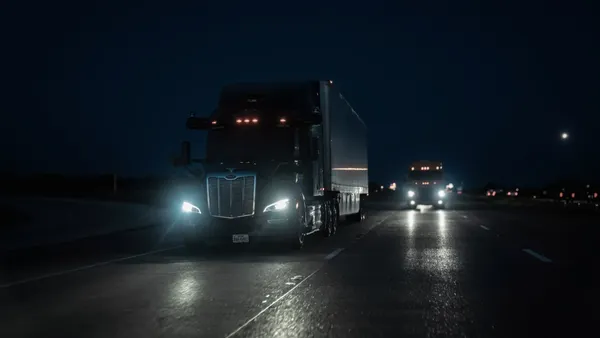Dive Brief:
- Roadrunner Transportation Systems is a LTL-only company, the carrier announced Monday. It recently closed deals to sell Rich Logistics and Integrated Services to "an undisclosed strategic buyer" and Roadrunner Temperature Controlled to Laurel Oak Capital Partners, completing all its divestments.
- As part of its LTL strategy, Roadrunner Freight has added more than 100 independent contractors "and has achieved the lowest 12-month turnover in recent history," the company said. It is also planning to open a service center in Chicago this month with twice the capacity of its current facility in the city. Roadrunner recently opened facilities in Riverside, California, and Philadelphia.
- "We enter this new stage of Roadrunner with the healthiest balance sheet in the company’s history,” said Frank Hurst, president of Roadrunner Transportation Systems, in a statement. The divestments, along with spinning off Ascent Global Logistics, have reduced the company's balance sheet liabilities by about $400 million, Roadrunner said in the announcement.
Dive Insight:
Shedding business lines is a way for Roadrunner to get back to its roots. LTL is the legacy segment, Hurst said, and is what it was known for by many of its customers. "Roadrunner never should have shifted away from LTL," Hurst said, and the right time to make the change "was probably years ago."
With balance sheet liabilities reduced, Roadrunner plans to invest in technology, lane enhancement, and driver and workforce experience to improve wait times and efficiency for drivers and shippers — and to help increase its market share.
"We want to be a multi-billion-dollar enterprise, and one that's really one of the great American comeback stories," Hurst said. "There's not a lot of stories around LTL companies that have successfully turned around."
Since the beginning of the year, Roadrunner has reduced transit time in more than 300 lanes, Hurst said. The facility in Philadelphia will help speed up the network in the Northeast, while the new center in Chicago is set to do the same in the Midwest, he said. The new facility in California was added to handle growth, "especially in e-commerce," Hurst said. Roadrunner has hired more than 100 drivers this year with aspirations to add 100 more, and to recruit dock employees and frontline leadership in almost all its facilities, Hurst said. The divestments led to a contraction in the company's workforce, eliminating some back-office and non-customer-facing positions.
The carrier is using dock automation and an API for bills of lading. Roadrunner also began using RoadPRO, an analytical tool for driver performance metrics.
One of the biggest pushes for Roadrunner has been on driver retention and recruitment. Hurst said the company built a team to work with independent contractors to make sure miles are maximized on a weekly basis and has "increased and enhanced" the packages it provides to drivers. And Roadrunner's operational improvements have led to reduced wait times and increased miles, Hurst said.
He did note the challenges Roadrunner faced as the industry was hit with a down market in late March and April. But business came back at the end of May, and the company said it was able to post its first positive EBITDA month in three years. Hurst said June and July "showed double-digit growth."
The operational investments Roadrunner made to help make the change yielded average losses of about $4 million a month in the fourth quarter of 2019 and the first quarter of 2020. In its full year 2019 earnings report, the company said more than $300 million of cash proceeds it got from divestments was "primarily used to pay down finance leases and debt."
The carrier's financial hardships can be traced back to a 2017 accounting scandal, in which the then-CFO was allegedly engaged in fraud, that led Roadrunner to restate several years of financial reports, according to The Wall Street Journal. Roadrunner reported a net loss of $341 million in 2019 and said it would delist from the New York Stock Exchange.
Roadrunner began selling its businesses late last year, starting with the sale of Roadrunner Intermodal Services in November, followed by its flatbed business the next month. Roadrunner then sold Prime Distribution and Stagecoach in March and April, respectively, and spun off Ascent into an independent, privately owned company in July.











